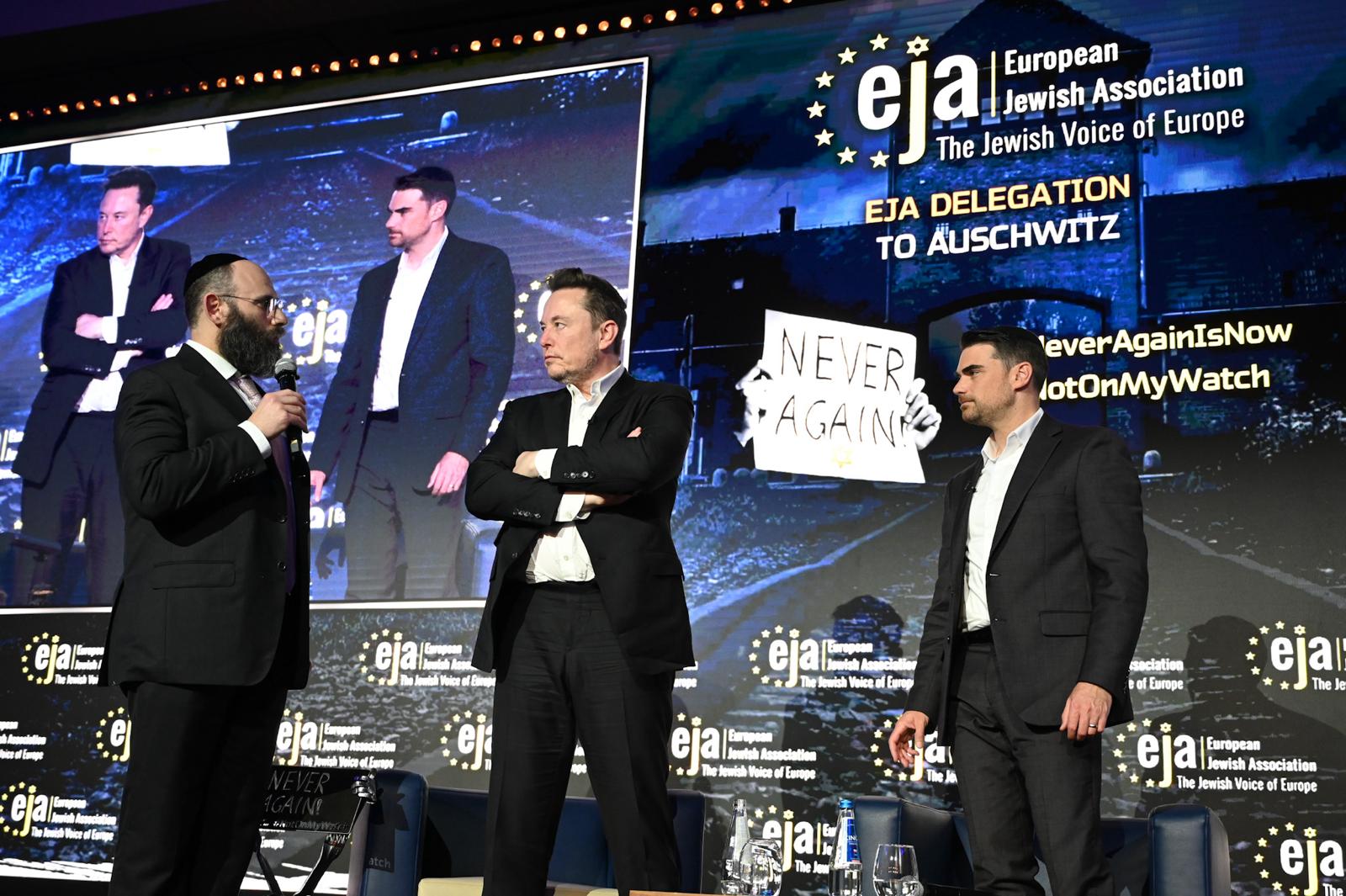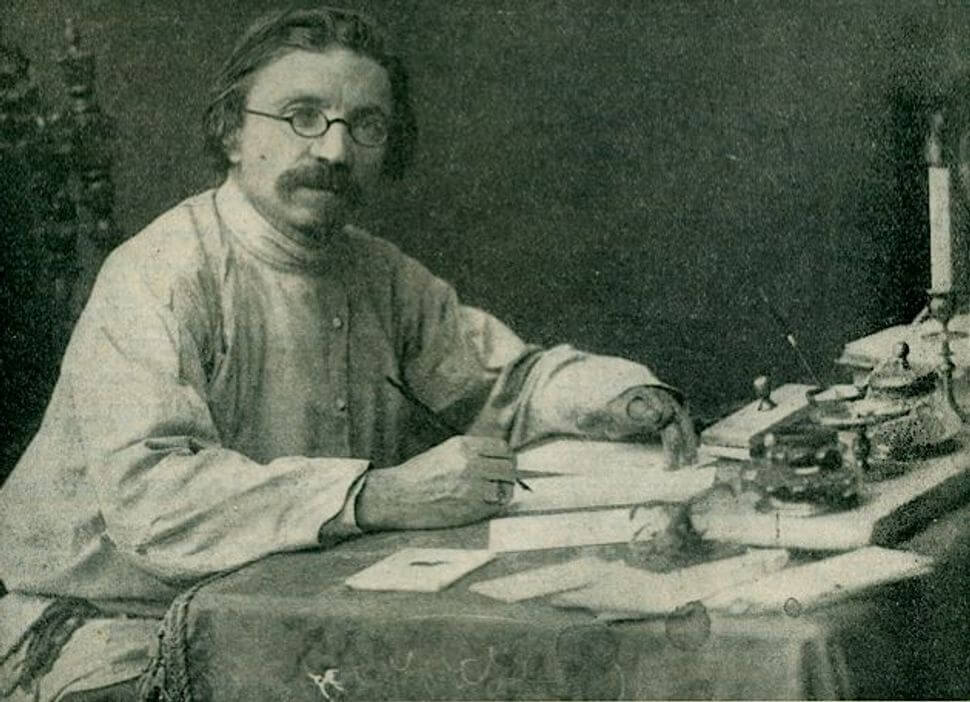Following Auschwitz visit, Elon Musk says X could have saved Jews from the Holocaust
“Two thirds of my friends are Jewish,” Musk said to an approving Ben Shapiro. “I’m like Jewish by association — I’m aspirationally Jewish.”

Rabbi Menachem Margolin of the European Jewish Association, Elon Musk and right-wing pundit Ben Shapiro stand on stage at an EJA conference in Krakow, Poland, Jan. 22, 2024. (Courtesy EJA)
KRAKOW, Poland (JTA) — Elon Musk said that X, his social media platform, could have saved Jews from the Holocaust after visiting the Auschwitz-Birkenau death camp on Monday.
Musk made the comment during a conversation with Jewish right-wing pundit Ben Shapiro during a forum of senior politicians and Jewish leaders from 25 European countries hosted by the European Jewish Association in Krakow. Speakers focused on a dramatic increase in antisemitic incidents across the world since Hamas attacked Israel on Oct. 7 and Israel responded with on a bloody war on Hamas in Gaza.
The tech mogul has drawn criticism over several antisemitism controversies in recent months, including his endorsement of an antisemitic conspiracy theory, vicious spats with the Anti-Defamation League and a documented spike in antisemitic posts on X — formerly known as Twitter — since he took over the company.
But he was treated as a heroic figure at the EJA conference, in keeping with his reception among right-leaning Jewish audiences generally. To demonstrate how X might have mitigated the mass murder of Jews, EJA Chairman Rabbi Menachem Margolin played a video that scrolled through an imagined X feed during World War II.
Set to dramatic music, the posts included messages such as, “The Nazis told the Jews to get inside the synagogue – entire families, infants in their mothers’ arms, right? They’ve closed the doors and windows with metal bars and then SET IT ON FIRE! OH. MY. GOD. The world must know!”
Another post suggested that social media could have improved upon Jewish resistance efforts. “It’s time to fight back,” it said. “Join the Jewish Fighting Organization, under my command, and attack Nazis in Warsaw Ghetto!”
When the video concluded, Margolin said about the platform, “It could have saved millions of lives.”
Musk endorsed this alternate historical universe. “If there had been social media, it would have been impossible to hide,” he said about the Nazis’ campaign against the Jews. “If there had been freedom of speech, as well. One of the first things the Nazis did when they came in is they shut down all the press and any means of conveying information.”
Historians have also pointed out that the Nazis were masters of using existing media to press their case against the Jews, suggesting that in this alternate universe, the Nazis might have weaponized social media as well — as countries today have been accused of doing in their internal and external conflicts.
As a token of appreciation, Margolin, who is affiliated with the Chabad Hasidic movement, also presented Musk with an art piece made from a Hamas rocket that fell on a kindergarten in Kibbutz Beeri, where about 100 residents — a quarter of the population — were killed on Oct. 7.
“Never again” was carved on the rocket, along with a plaque reading, “Presented to Mr. Elon Musk in January 2024 in recognition and appreciation of your fight against antisemitism and to mark your visit to Auschwitz.”
When asked about critiques that X is permissive when it comes to antisemitic content, Musk argued that the platform’s “community notes” feature, in which users can attach context to others’ posts, counteracts hate speech.
“If somebody tries to push a falsehood, like Holocaust denial or something like that, they can immediately be corrected,” he said.
Despite the increase in antisemitic content under his watch, Musk said he was nearly unexposed to antisemitism in his personal life because of his personal Jewish circles.
“Two thirds of my friends are Jewish,” he said. “I have twice as many Jewish friends as non-Jewish friends. I’m like Jewish by association — I’m aspirationally Jewish.”
Margolin told the Jewish Telegraphic Agency that he did not know enough about social media to weigh in on specific policies at X but said he believes Musk’s visit to Auschwitz will help him combat antisemitism online.
“I believe that he is absolutely against any expression of antisemitism and that the visit today helped him to understand it even better,” he said. “So I can only anticipate that we will see much less antisemitism on social media.”
This article originally appeared on JTA.org.
















